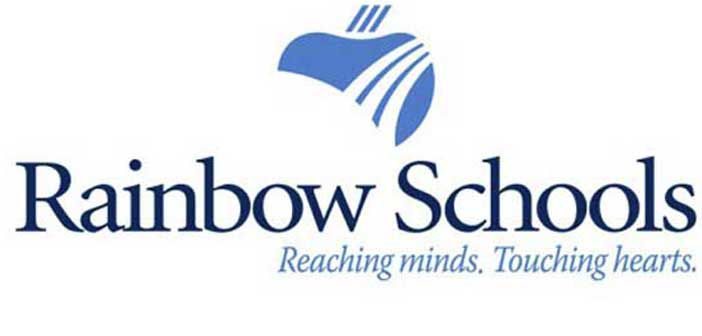SUDBURY—The Rainbow District School Board passed a motion at the board’s Tuesday, April 25 meeting that acknowledged the work of the National Truth and Reconciliation Commission (TRC), specifically in regards to the TRC calls to action regarding education, and committed the board to meeting several of those recommendations. Manitoulin trustee Larry Killens cast the sole dissenting vote on the motion—but Mr. Killens said that he supported the goals of the motion “in a perfect world,” but that he had concerns regarding the funding and what he characterized as the compulsory nature of the commitments being made.
The motion’s action items included six clauses. The first is to commit to the “development of a Truth and Reconciliation Action Plan in consultation with the First Nation Advisory Committee and the Urban Indigenous Advisory Committee.”
The second is “that all students graduate with knowledge of residential schools and their devastating impacts on indigenous communities in Canada and recognize the importance of their contributions to the reconciliation process.”
Third “that all students graduate with an understanding of the significance of the treaties and the shared history of First Nations and non-Indigenous Ontarians.”
Fourth was a commitment “to the continued implementation and development of Anishinaabemowin programs.”
Fifth to “provide opportunities to all staff and students to learn more about the richness of indigenous worldview and cultures, working hand-in-hand with indigenous peoples.
Finally, a commitment “to implement, promote and enforce anti-racism strategies as it relates to indigenous students, families and communities.”
The motion came forward from the board’s First Nations Advisory Committee and was very well received by all members of the board.
RDSB Superintendent of Schools Lesleigh Dye, under whose portfolio the committee falls, noted that implementation of the motion’s intent will be “imbedded into the daily learning of the students, not a separate course.”
“The Ministry of Education is looking at a mandatory secondary school course, but they are not at that point yet,” she said. She went on to note that the commitments being integrated into the daily learning of the students would not require any significant additional resources. But like many other components of learning within the school system, knowledge of the roles that First Nations and indigenous peoples have played in the development of Canada and Ontario could be imbedded within that daily curriculum.
“When Rainbow students are with us in the course of 14 years of education, there are ample opportunities to impart that knowledge,” she noted. “We also have guest speakers upon which we can build a greater understanding, elders who come in to share their knowledge and a variety of other classroom activities that can help build cultural understanding.”
Ms. Dye noted that last week’s Manitoulin Secondary School powwow was a great example of the kinds of activities that can be an ongoing and active part of the learning process.
In addition to overt activities, there are a host of other avenues of learning, including the choices of novels, movies, pictures and books that are selected for inclusion in both the classroom studies and availability in the school library.
Superintendent Dye noted that while she had given a presentation to the board prior to the introduction of the motion, it was student trustee Katie Yao who she thought delivered the most eloquent and thoughtful commentary in support of the motion.
“When I saw the motion I was 100 percent in support,” she said. “When I listened to some of the discussion and comment made, I thought I needed to present the student perspective, especially on the third point that all students graduate with an understanding of the significance of the treaties and the shared history of First Nations and non-indigenous Ontarians.”
Ms. Yao noted that “there is so much learning that goes on in the 14 years with other aspects of learning. Fifteen years from now I may not remember everything from my calculus class, but I will definitely remember the poems I listened to about residential school.”
As to the material being imbedded into the overall learning paradigm, Ms. Yao said it makes tremendous sense to her. “For the 15,000 students poised to graduate from RDSB schools, just because it is not taught in a specific course, doesn’t mean they shouldn’t have a knowledge of what is going on in the world around them, or what has happened in the past,” she said.
She pointed out that many students can’t fit a particular course into their selections, due to scheduling conflicts or a limited course selection offered in their schools. “There are things you can teach with a 10-minute video at the start of a class, that you can learn through the readings you are assigned, it doesn’t have to come through a specific course.”
Ms. Yao is not only the student trustee on the RDSB, she also sits on the executive council of the Ontario Student Trustee Association, and recognition of the role of First Nations, Inuit and Metis peoples to Canadian history and culture is an ongoing discussion on the council. “I am really pleased to be part of that,” she said. Ms. Yao’s parents are first generation Chinese immigrants to Canada, but she notes that even in her Grade 10 history class, there was little to no mention of the role of Canada’s indigenous peoples.
“I am really happy that the Rainbow board is taking an active role in dealing with that,” she said.
Manitoulin First Nations trustee Grace Fox said that she was disappointed that the only opposition to the motion came from the Manitoulin RDSB trustee, but that she was very pleased that the RDSB did support the motion.




